Honey Mustard Organic: The Spicy-Sweet Secret You Didn’t Know Your Kitchen Needed
Table of Contents
- Introduction: Why Honey Mustard Deserves the Spotlight
- What Exactly is Organic Honey Mustard?
- Health Benefits: More Than Just a Condiment
- Spice Levels Explained: Mild, Medium, or Fiery?
- 5 Clever Ways to Use Organic Honey Mustard in Everyday Cooking
- DIY Alert: How to Make Your Own Organic Honey Mustard at Home
- Spice & Flavor Pairing Chart: What Goes Well with Honey Mustard?
- Buying Guide: How to Choose the Best Organic Honey Mustard
- Conclusion: Don’t Let This Sweet-Heat Staple Slip Off Your Shelf
Introduction: Why Honey Mustard Deserves the Spotlight
If honey and mustard were cast in a rom-com, their love story would be called "The Sweet Heat of Summer." And no, we’re not talking about your standard airport pretzel sauce here. We're diving into the golden, grainy glory of organic honey mustard — that sticky, zesty elixir that can rescue bland chicken, jazz up sandwiches, and even double as a dip for fries if you're feeling wild.
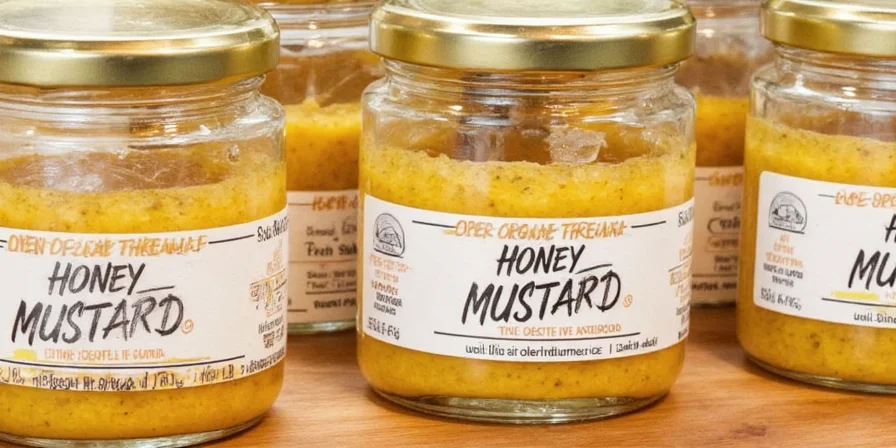
But let’s be real — not all honey mustards are created equal. There’s a world of difference between that neon-yellow squeeze bottle from the gas station and a rich, earthy, organic blend made with raw honey and stone-ground mustard seeds. If you’ve ever wondered whether you’re just slathering junk on your sandwich or actually unlocking some culinary magic, read on.
What Exactly is Organic Honey Mustard?
Let’s break it down. Organic honey mustard is exactly what it sounds like — a mixture of organic honey and organic mustard. But depending on how it’s made, this condiment can swing from sweet-as-grandma’s-cookies to hot-enough-to-make-you-question-your-life-choices.
The base ingredients usually include:
- Organic honey (raw is better!)
- Organic mustard seeds or powder
- Vinegar (apple cider vinegar is popular)
- Salt
- Optional spices: garlic, turmeric, paprika, chili flakes
Unlike commercial versions, which often use corn syrup, preservatives, and artificial flavors, true organic honey mustard focuses on purity and quality. That means no sketchy fillers, no unpronounceable chemicals, and definitely no guilt.
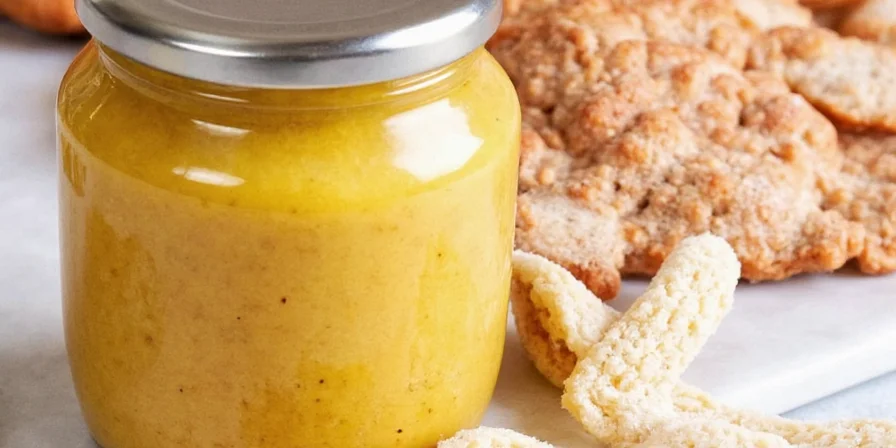
Health Benefits: More Than Just a Condiment
Besides being delicious, honey mustard brings some serious health perks to the table. Let’s take a peek under the lid:
| Ingredient | Health Benefit |
|---|---|
| Organic Honey | Antioxidants, antimicrobial properties, soothes sore throats |
| Mustard Seeds | Rich in omega-3s, may aid digestion, anti-inflammatory |
| Vinegar (Apple Cider) | May help regulate blood sugar, improve gut health |
Translation: You’re not just adding flavor — you’re adding function. And bonus points if you whip up a batch with local honey; that stuff might just give your immune system a little nudge.
Spice Levels Explained: Mild, Medium, or Fiery?
Here’s the deal — honey mustard isn’t one-note. Depending on the ratio of honey to mustard, and what kind of mustard you use, you can have wildly different spice experiences.
- Mild: Perfect for kids or anyone who prefers flavor without the burn. Great for burgers, grilled cheese, and salad dressings.
- Medium: Balanced heat and sweetness. Ideal for dipping sauces, glazes, and marinades.
- Fiery: For those who like their condiments with a side of adrenaline. Try it with wings, roasted veggies, or drizzle on pizza for an unexpected kick.
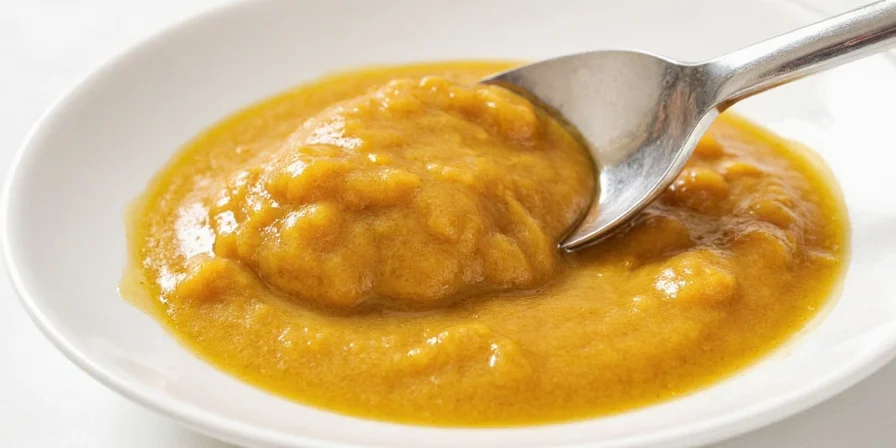
5 Clever Ways to Use Organic Honey Mustard in Everyday Cooking
You’ve got the jar open — now what? Here are five genius ways to go beyond the usual dipping scenario:
- Marinade Magic: Mix honey mustard with olive oil and herbs for a killer chicken marinade. Grill, bake, or pan-sear to golden perfection.
- Dressing Upgrade: Whisk with olive oil, lemon juice, and a dash of Dijon for a fast vinaigrette that screams gourmet.
- BBQ Glaze Alternative: Brush onto ribs, salmon, or tofu during the last 10 minutes of cooking. It caramelizes beautifully!
- Dip Everything: Carrots, celery, nuggets, pretzels — you name it, it probably tastes better dipped in honey mustard.
- Pizza Power-Up: Swirl it on white pizzas or drizzle over pepperoni slices for a sweet-and-spicy finish.
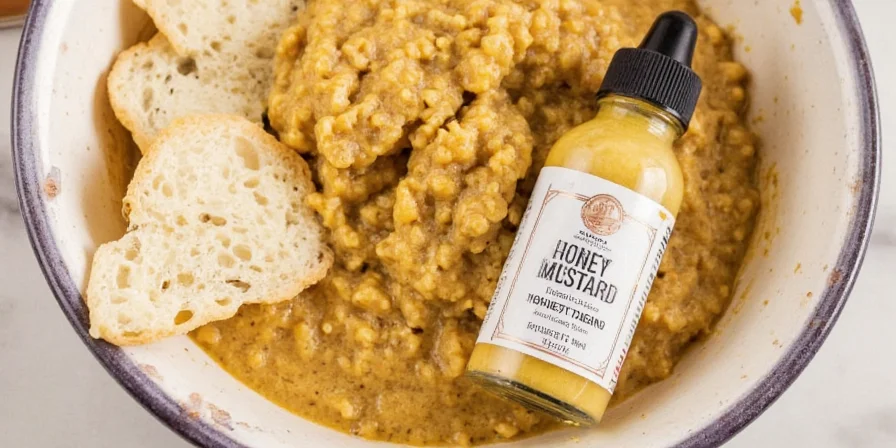
DIY Alert: How to Make Your Own Organic Honey Mustard at Home
Ready to go full mad scientist in the kitchen? Making your own honey mustard is easier than you think — and infinitely customizable. Here's a basic recipe:
Homemade Organic Honey Mustard Recipe
- 1/4 cup organic yellow mustard
- 2 tbsp raw organic honey
- 1 tbsp apple cider vinegar
- 1 tsp sea salt
- Pinch of garlic powder (optional)
- 1/4 tsp cayenne pepper (for heat lovers)
Mix everything together in a bowl until smooth. Taste, adjust, and store in a sealed jar in the fridge. Keeps for up to 2 weeks.
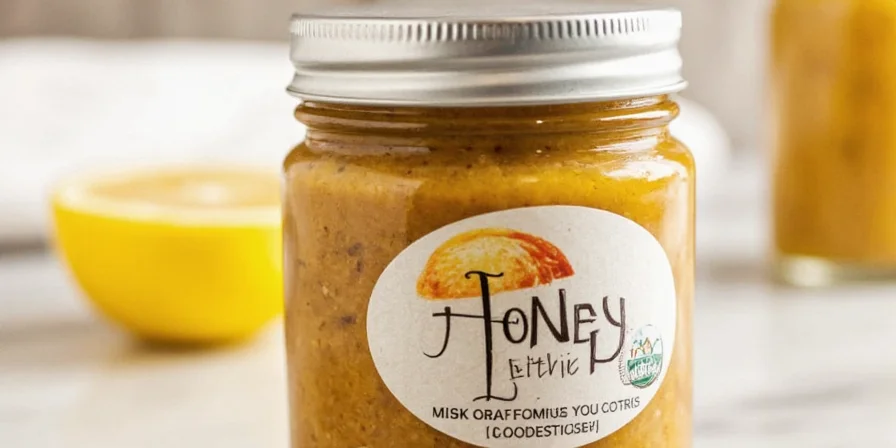
Spice & Flavor Pairing Chart: What Goes Well with Honey Mustard?
Not sure what to pair your honey mustard with? Check out this handy guide to find the perfect match:
| Flavor Profile | Best Matches |
|---|---|
| Mild & Sweet | Ham, turkey, brie, apples, pork chops |
| Medium & Tangy | Grilled chicken, roast beef, arugula, pickles |
| Hot & Bold | Wings, lamb, halloumi, spicy tacos, grilled mushrooms |
Pro tip: Always taste test before committing to a dish. A little heat goes a long way!
Buying Guide: How to Choose the Best Organic Honey Mustard
Heading to the store or shopping online? Keep these factors in mind when selecting the perfect jar:
- Check the Label: Look for “certified organic” on the packaging. Avoid anything with high fructose corn syrup or weird additives.
- Know the Brand: Stick with trusted names or check customer reviews for homemade-style brands.
- Consider the Spice Level: Read labels carefully — some brands will call their medium version “extra hot.”
- Price vs. Quality: Yes, organic costs more, but you’re paying for cleaner ingredients and better flavor.
- Packaging Matters: Squeeze bottles are great for mess-free application, but glass jars keep flavors fresher longer.
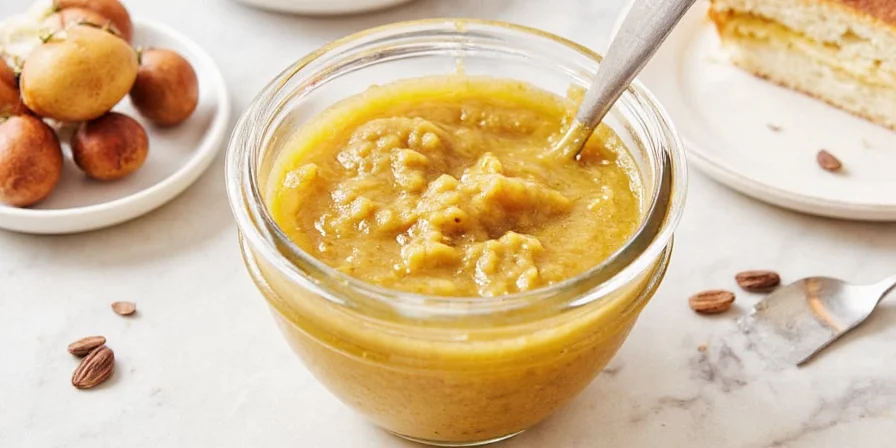
Conclusion: Don’t Let This Sweet-Heat Staple Slip Off Your Shelf
So there you have it — honey mustard isn’t just a relic from middle school lunchboxes. With the right balance of organic ingredients, spice, and creativity, it can become one of the most versatile players in your pantry. Whether you're brushing it onto grilled meats, stirring it into dressings, or smearing it on a crusty baguette, you’re not just enhancing flavor — you’re upgrading your whole kitchen game.
Now go forth, get experimental, and maybe don’t eat it straight from the spoon… unless you really want to. No judgment here.
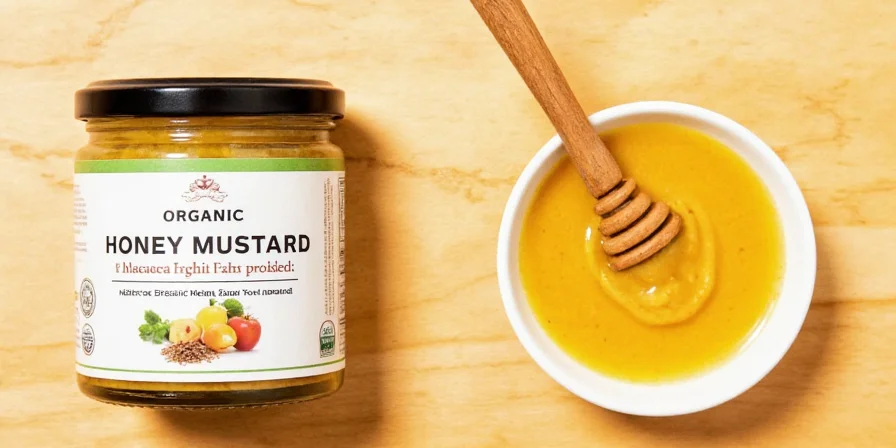

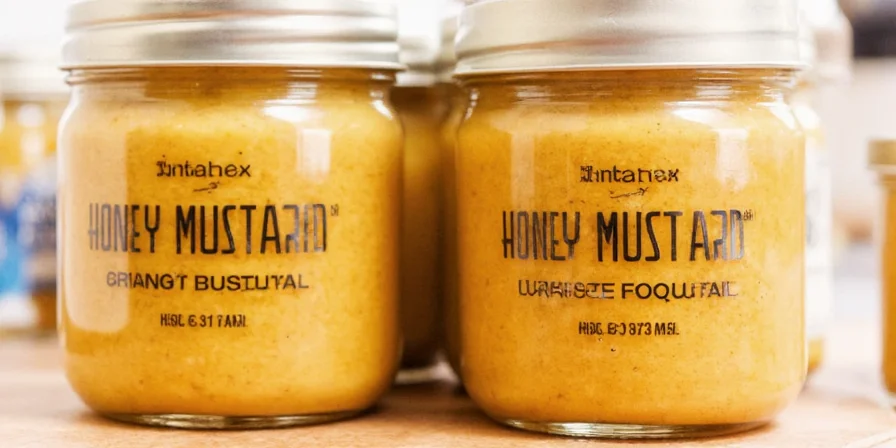









 浙公网安备
33010002000092号
浙公网安备
33010002000092号 浙B2-20120091-4
浙B2-20120091-4